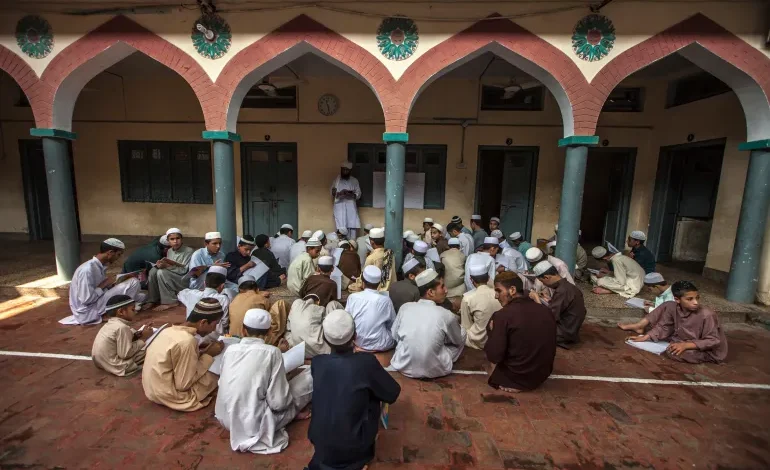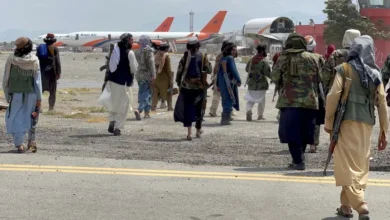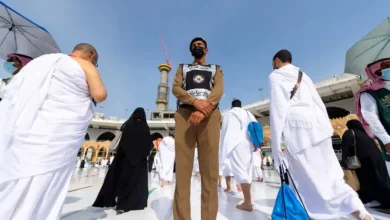Why a bill on religious seminaries is Pakistan’s latest flashpoint

After fending off protests from the opposition Pakistan Tehreek-e-Insaf (PTI) party, the Pakistani government now faces a new challenge – a potential agitation led by Fazal-ur-Rehman, leader of the religious Jamiat Ulema-e-Islam-Fazl (JUIF) party.
Rehman, a veteran politician and part of the ruling coalition that governed Pakistan from April 2022 to August 2023, is urging the government to approve a bill that was introduced in October to amend the registration process for religious seminaries.
In October, the legislation was passed along with the controversial 26th amendment – moved by the government, and for which they needed the support of JUIF legislators – which gives parliament oversight on judicial appointments.
However, when the bill reached him for final approval, President Asif Ali Zardari raised “technical objections” and sent it back to parliament for further deliberation. The government of Prime Minister Shehbaz Sharif has since indicated that it too has concerns about the bill – sparking a standoff.
“We want to create an atmosphere of trust. It is the government’s responsibility to improve the situation, but it seems to be pushing people towards extremism and protest,” Rehman said in Peshawar.
So what does the current law say, and what would the new bill do? What are the concerns Zardari and others have raised? And what comes next, for the bill and for Pakistan’s fractured polity?
How were seminaries governed historically?
The debate over registering religious seminaries, also known as madrassas, has long been contentious in Pakistan.
Historically, seminaries were registered under the colonial-era Societies Registration Act of 1860 at the district level. This decentralised system left the government with little control over seminary curricula, activities or funding.
In particular, state or federal education officials had no scrutiny over seminaries, which only dealt with local bureaucrats.
Over time, concerns grew over the absence of any effective monitoring of the curriculum, finances, or activities of these schools.
Why did more stringent regulation begin?
The tipping point was the 9/11 attack and the launch of the so-called “war on terror” by the United States. Pakistan, under military leader General Pervez Musharraf, sought to reform seminaries.










